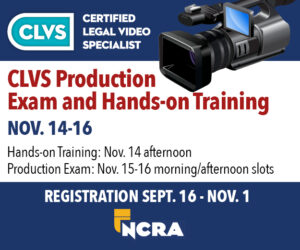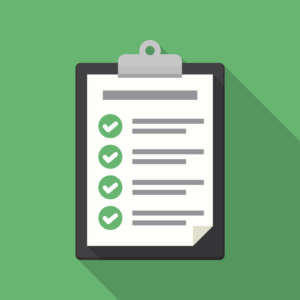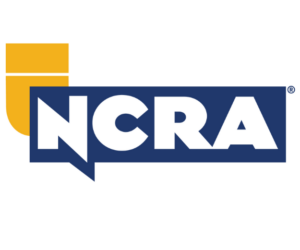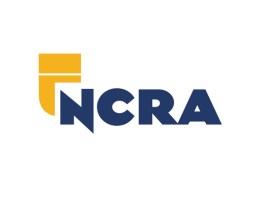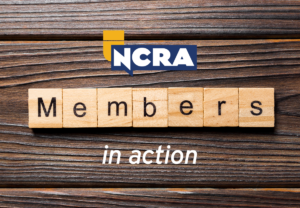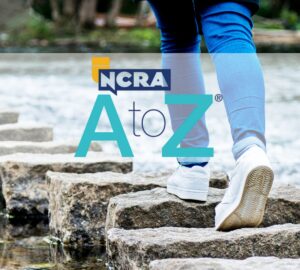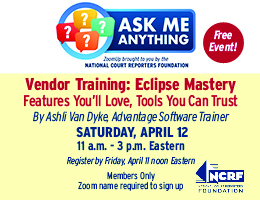Denyce Sanders, RMR, CRR, of Houston, Texas, recently agreed to be interviewed about passing NCRA’s Registered Merit Reporter exam on her first try. She has been freelance reporting for about 25 years and had also earned Texas’s CRR. She is also certified as a Realtime Systems Administrator through NCRA. Her next challenge is the Texas RMR – and she said she’s taking it “just for fun in June.”
JCR: You recently passed all three legs of the RMR exam — all on the first try — with four errors on the literary leg [out of 50 allowed], eight errors on the Jury Charge leg [out of 60 allowed], and ten errors on the Testimony leg [out of 65 allowed]. Does that sound right to you?
DS: Yes.
JCR: I’ve heard that the RMR is not the first test you passed on the first try. Can you tell me about your other experiences?
DS: Well, I had forgotten that I took the CRR more than 10 years ago. I had just updated my software, and it froze in the middle of the exam and that was all she wrote. I did pass the RPR the first time. I took the CRR in April of 2013 and passed that and then took the Texas CRR and passed that on the first try.
JCR: Before I jump into asking the tough questions, I know that participating in this interview might be a little uncomfortable for you — getting showcased like this — so I want readers out there to know that we reached out to you to spotlight you on your accomplishments, and that you didn’t approach us with the idea. Our purpose in spotlighting you is to help other reporters achieve similar results. You’ve mentioned that reporters don’t really ask you how you’re able to accomplish what you do. That seems odd to me, given your great achievements. Is that really how it is?
DS: Yes. While I try to support others in the profession as I have been helped by many others, reporters can be defensive and feel as if they are being judged if help is offered. It is an unfortunate condition for the trade. That’s very sad to me. I have always helped anyone I can, and I, in turn, have been helped myself, so I try to pass it on.
JCR: My purpose is to ask the questions that no one is asking you — to dive deeply into what you practice and how you practice that brings you such fantastic success. The future of the reporting industry is realtime, so let’s start there. Could you please explain what you did to prepare for your state and NCRA realtime certification exams, what you practiced, and how you practiced — including your daily practice routine?
DS: Well, first off, I have to say that I started working on my writing first. I knew that I wanted to take the CRR, but I knew it was the easiest test you’ll ever fail. My writing needed work. I wasn’t really serious about it. I had used Realtime Coach off and on but didn’t get serious until 2012. I had broken my thumb in 2008, and I broke my wrist in two places in September of 2012. I had surgery and am now the proud owner of two screws, a plate, and a nice scar! That delayed my plans a little.
So, I started out by honing my basic writing. I practiced slower takes and worked on each one until I got it perfect. Then I moved on. I focused solely on perfect writing for the CRR. I had been a reporter for a long time, so I had to work harder to work out some bad habits. I used mainly RTC for the CRR. I practiced every day if I could and a lot on weekends. If I couldn’t get a take right, I would break it down until I could. The month leading up to the CRR, I think I logged 36 hours of practice. I’m not a good test taker, and I wanted to be ready.
The RMR is a different animal. That’s about speed. I would warm up first with easy stuff and then I would work my way up in speed. I would try and practice before work each day using the Daily Warmup with RTC. I would also warm up my fingers by writing the alphabet and the numbers. I took it slow and built up my speed gradually. I didn’t really decide on when I would take it until I could write 240 easily. Then I decided I would take the RMR in November.
Setting a goal is important. It’s too easy to let work get in your way. There were a lot of times I would get a job scoped or proofed so I could practice. If a job canceled, I would practice. I made it my second job. I practiced every weekend without fail first thing in the morning, so nothing got in my way. To get ready, I practiced only hard material. On RTC, I would speed up and slow down the material. Pushing for the 260 was the hardest. My wrist was very unhappy with me. I had to take that part really slow. That was frustrating. I had to break it down into one-minute segments and vary the speed up and down. Quite honestly, I think that actually helped, looking back on it.
The last month before the exam, I did a Literary, Jury, and Q&A every practice session. The last two weeks, I would grade myself by tranning the job against what I had edited in RTC. The week before the RMR, I took the practice exam and I passed all three, so I knew I was ready! You just know when you are ready. If you think the 260 is fast, you are not ready. Practice until you can consistently write it. That’s the best advice I can give. I had all three legs of the RMR done and turned in in a little more than an hour.
Now those fast attorneys and witnesses — I consider them a challenge. There have been several times since I passed the RMR that I have said to myself “so glad I can write fast” because they were flying. But I still remember the first time I wrote a depo with zero untranslates — that was an awesome feeling! That doesn’t mean I wrote it perfect, but it was pretty darn clean! My record for zero untranslates is 250 pages.
Even now, my goal is zero untranslates every job. The one thing I can say is I wish that I had done this years ago. Every job is so much easier now!
JCR: You mentioned that you approached the RMR and the CRR practice differently. Do you think that it’s important to make that distinction as you practice? And which do you find comes closer to your work style – the RMR or the CRR? Is there one you would recommend that reporters get first?
DS: Wow. That’s a tough one. Personally, yes. If I had to do it again, I would get the RMR first. The RMR is a speed test and the CRR is an accuracy test, so it’s a lot easier to hone your writing for accuracy when you have that speed. I trashed my accuracy to gain speed. But if you want to focus on doing realtime, then get that CRR certification first. I think it’s mainly personal preference. And my work style is mainly CRR. That’s what I wanted to do first, and I enjoy the challenge — it keeps me on my toes. I love technology. I love being able to stream to the iPads. I recently heard that they added streaming to iPads via Wi-Fi as an element of the Realtime Systems Administrator test.
JCR: It’s exciting to hear that you find that having the tests under your belt makes you a better writer on the job. Do you think it’s the effective practice or the confidence that comes from having passed the tests?
DS: Hands down the practice. When you are sitting there in that conference room, the attorneys don’t know what certs you have or don’t have. The confidence comes from easily getting everything thrown at you, and then laughing to yourself when they tell the witness to slow down or they apologize for talking too fast, and you’re thinking to yourself, “No worries, I’ve got this!”







